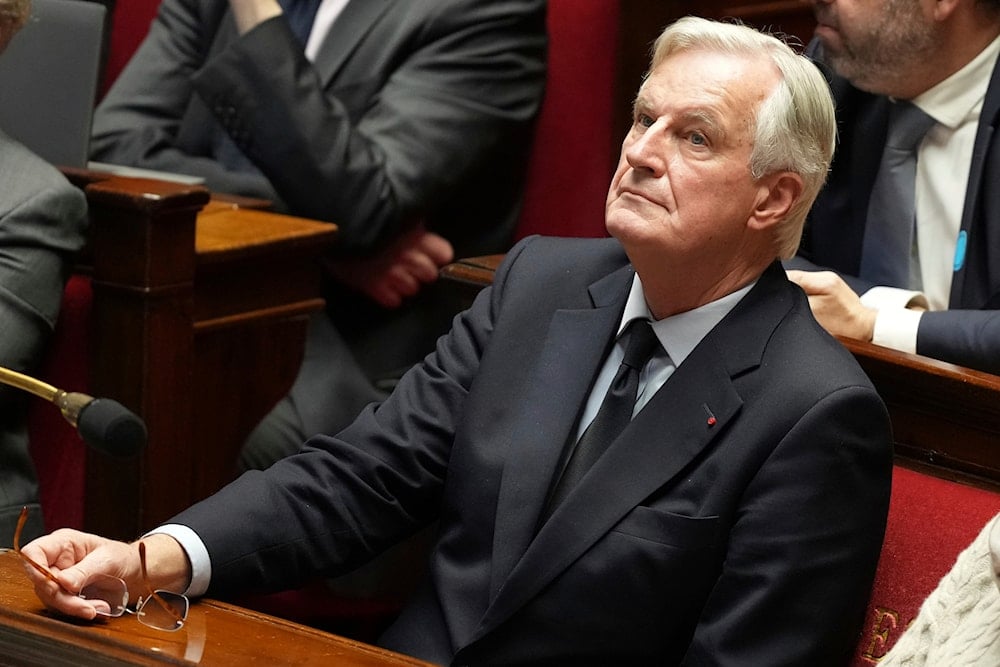What can happen next in France following the no-confidence vote?
A Parliamentary vote could compel the prime minister to resign, leaving his budget legislation in uncertainty.
-

French Prime Minister Michel Barnier attends a debate at the National Assembly while France's minority government may be on its last legs as opposition lawmakers moved this week toward a no-confidence vote, on December 2, 2024, in Paris. (AP)
France's Prime Minister, Michel Barnier, is confronting a no-confidence vote that could result in the country being left without a functioning government and a budget as it approaches the new year.
The New York Times (NYT) wrote on Tuesday that if the no-confidence vote is followed through, France will not necessarily head toward a constitutional crisis. The report explains that the French Constitution provides various options that could help maintain the country’s operations despite the political turmoil.
According to NYT, French institutions are strong, and laws ensure continuity without a government or budget. However, investors are selling off French stocks and bonds, driving up borrowing costs.
In September, President Macron appointed Barnier, overlooking the leftist coalition that won the most votes in the parliamentary elections. Instead, he chose Barnier, a figure from the traditional centrist right, angering the left. Since then, Barnier has faced significant challenges, living "the hell of Matignon," a term used to describe the difficulties of governing from Matignon Palace, where the prime minister holds limited power, according to NYT.
On Monday, Barnier pushed a budget bill through the lower house of Parliament without a vote, a risky move that prompted no-confidence motions from both left-wing parties and Marine Le Pen’s far-right National Rally. According to the report, the fate of Barnier and his cabinet, appointed by Macron just three months ago, now depends on their ability to navigate the situation.
If the no-confidence motion proceeds, the vote is expected as early as Wednesday and is likely to pass. In that case, Barnier would have no choice but to resign, and the government would be forced into caretaker mode.
What about the budget?
The NYT wrote that without a functioning government, Barnier’s $60 billion budget would be nullified. If Macron appoints a new prime minister by year’s end, a new budget could be submitted, allowing Parliament 70 days to review it.
Even then, France would still lack a spending law by the new year. Under French law, the government could propose a "special measure" to extend the 2024 budget by December 19, ensuring civil servants are paid and taxes remain unchanged.
According to the report, if Parliament rejects the measure or fails to vote, Macron could use his constitutional powers to impose a budget. However, legal experts warn that the political fallout from such an unprecedented move could be severe, especially as Macron faces growing criticism for ignoring the will of French voters.
Earlier in October, Barnier survived a no-confidence motion tabled by the left, marking the first test for his fragile government’s support in parliament. The motion, which required 289 votes for adoption by a majority in the 577-seat National Assembly, garnered only 197 votes.

 3 Min Read
3 Min Read








